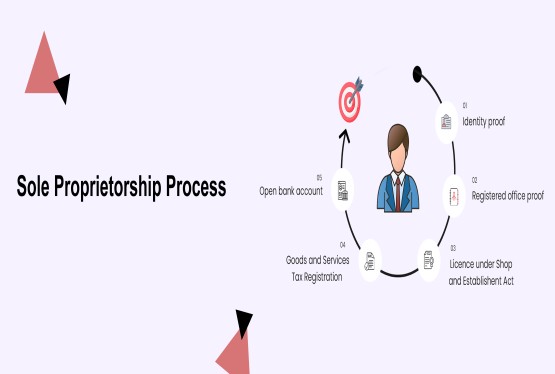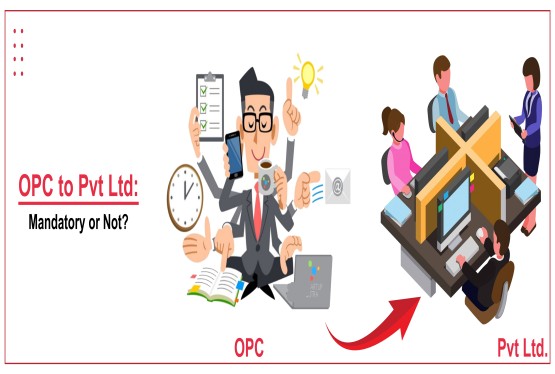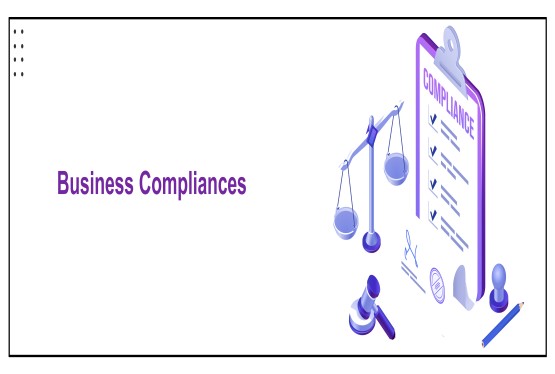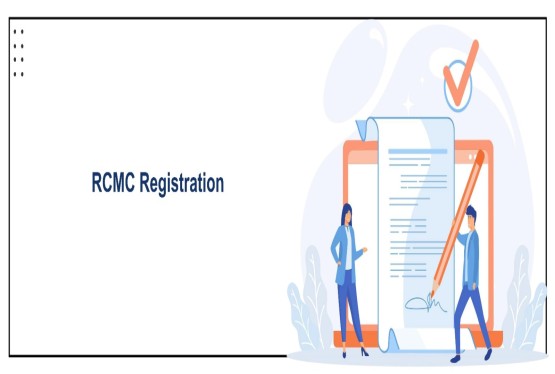Gone are the days when people considered insurance as luxury and LIC as the only insurance company to fall on. As earnings of most the people are rising, the first thing they want to do is to secure their family and that is possible only through insurance which has caused in the increase of insurance companies in India in pas some time.
India as country if we see, very few people bother to take terms insurance or health insurance. They feel that it is a waste of money but as they say- you are only one hospitalization away from being bankrupt if you do not have the health insurance. The cost of medical emergencies have risen like anything and even a simple disease can cost you your life's earnings.
IRDAI (regulatory body that regulates insurance companies in India) has been creating various awareness program and now more people are willing to take health and term insurance giving birth to new businesses and more founders are looking to register insurance companies in India.
For entrepreneurs, starting an insurance company in India is more than just a business venture, it’s a chance to create lasting value and easy to raise funds in the insurance companies in India. The insurance industry not only offers the potential for a consistent revenue stream through policy renewals but also the freedom to innovate and cater to a diverse customer base with more insurtech businesses coming into play. With the right strategy, strong compliance with regulatory requirements, and a commitment to exceptional service, you can establish a brand that inspires trust while ensuring the financial well-being of your clients. At Compliance Calendar LLP, we have beeing helping founders to start their insurance companies along with the right license from IRDAI.
Insurance Options to Consider for Your Insurance Company
When starting an insurance company, deciding on the type of insurance products to offer is a important step. Your choice should align with the market you want to serve and the demand within that segment. Selecting the right category helps you focus your business strategy and establish a strong market presence.
-
Life Insurance: Provides financial support to the beneficiaries of a policyholder in the event of their death. It ensures dependents can cover essential expenses like education, loan repayments, and daily needs. Plans such as term life, whole life, and endowment policies cater to different financial goals.
-
Auto Insurance: Also known as motor or vehicle insurance, it covers damages or losses caused by accidents, theft, or natural calamities involving cars, bikes, trucks, or other vehicles. In India, third-party motor insurance is mandatory, while comprehensive plans offer broader protection.
-
Health Insurance: Offers coverage for medical expenses due to illness, injury, or hospitalization. Policies may include cashless treatments, pre- and post-hospitalization benefits, and critical illness coverage, making them highly sought after in today’s high-cost healthcare environment.
-
Business Insurance: Protects companies from risks such as property damage, legal disputes, liability claims, and employee-related issues. It can be customized for businesses of all sizes, ensuring operational stability and trustworthiness.
-
Travel Insurance: Covers unexpected incidents during travel, including medical emergencies, trip cancellations, lost baggage, or misplaced documents. It’s especially useful for frequent travelers, students abroad, and corporate trips.
Eligibility Requirements for an Insurance Company License
To operate as an insurance provider in India, an entity must meet the eligibility standards laid down by the Insurance Regulatory and Development Authority of India (IRDAI). The main requirements are as follows:
-
Specified Company Types: Only companies that fall under the classes prescribed by the IRDAI are permitted to apply.
-
IRDAI-Approved Entities: The applicant must be a company formally recognised and approved by the IRDAI.
-
Limited Liability Partnerships (LLPs): LLPs incorporated under the Limited Liability Partnership Act, 2008 may apply, subject to compliance with all licensing conditions.
-
Pre-Act Insurance Providers: Companies engaged in insurance business before the commencement of the current Act may qualify, provided that foreign investment in such companies does not exceed 26% of the paid-up share capital.
-
Naming Requirement for LLPs: For LLP applicants, the registered name must clearly include the words “insurance marketing firm” in order to be eligible.
These provisions are intended to ensure that only qualified, compliant, and credible entities are granted permission to operate within India’s insurance sector.
Requirements for Starting an Insurance Company in India
Starting an insurance company requires fulfilling specific legal, regulatory, and operational prerequisites. The main requirements include:
Digital Signature Certificate (DSC)
A Digital Signature Certificate (DSC) is the digital equivalent of a physical signature, verifying the signer’s identity and ensuring document integrity. It contains the holder’s details, public key, and validity period. Obtain it from a government-authorized Certifying Authority to sign incorporation documents and file applications with the IRDAI.
Company Registration
Register your business under the Companies Act, 2013 or LLP Act, 2008 to create a separate legal entity. File incorporation documents MOA and AOA with the ROC to receive a Certificate of Incorporation, a prerequisite for applying for the IRDAI license.
IRDAI License
An IRDAI license is mandatory for starting an insurance company. Submit an application with company details, business plan, office address, key personnel profiles, financial statements, and proof of adequate capital. Approval depends on meeting regulatory standards, and professional guidance can improve success rates.
Trademark Registration
Registering your business name and logo as a trademark protects your brand identity, prevents misuse, enables legal action against infringement, and enhances market credibility.
Operational Infrastructure
Set up adequate office space, hire skilled staff, and invest in secure IT systems for policy management, claims handling, and compliance. Ensure strong data protection, uninterrupted power supply, and cybersecurity measures for smooth operations.
Steps to start a insurance buisness in India
These are the basic Steps to start a insurance buisness in India
Step 1: Define Your Insurance Niche
Before establishing an insurance company, it is essential to determine your area of specialization. Identifying a niche allows the business to focus its expertise, resources, and market positioning effectively.
Potential areas include life insurance, property and casualty insurance, and health insurance, among others. Conduct market research to evaluate demand, identify gaps, and analyze emerging trends. Selection should be based on the intersection of market potential and operational capability.
Step 2: Develop a Complete Business Plan
A well-structured business plan acts as a roadmap for guiding a company’s operations and long-term growth. It should encompass a comprehensive market analysis, evaluating the target audience, competitors, and prevailing industry trends. The plan must also outline the company’s competitive positioning by highlighting unique differentiators in its products, pricing strategies, and service delivery methods. Detailed financial projections should be included, featuring revenue models, estimated expenses, and profitability forecasts backed by accurate and reliable data. Additionally, a thorough risk assessment is essential, addressing potential operational, financial, and market risks, along with contingency measures to mitigate them. Most importantly, the business plan should be designed in accordance with the guidelines and requirements set by the Insurance Regulatory and Development Authority of India (IRDAI) or the relevant regulatory body in the applicable jurisdiction.
Step 3: Ensure Regulatory Compliance
Compliance with statutory and regulatory norms is crucial for starting an insurance company. This involves relevant insurance laws, IRDAI guidelines, and securing all required licenses before operations begin. The company’s structure, ownership, and capital must meet prescribed standards, and for LLPs, the registered name must include “Insurance Marketing Firm.” Seeking legal guidance can help avoid compliance issues and ensure a smoother approval process with the regulatory authority.
Step 4: Establish Financial Stability
Adequate financial resources are essential for both registration and the long-term operation of an insurance company. The business must meet the minimum capital requirements set by the IRDAI and secure funding through equity, debt, or a mix of both. Strong accounting and financial management systems should be in place to ensure transparency and control over resources. Additionally, arranging reinsurance can help mitigate underwriting risks and enhance the company’s solvency position.
Step 5: Build a Skilled Team
Recruitment should focus on professionals with expertise in underwriting, actuarial services, claims management, compliance, and sales. Training and continuous professional development are important for maintaining operational excellence and meeting regulatory standards.
Step 6: Implement Technology Infrastructure
Adopt technology systems that support efficient policy administration, claims processing, compliance reporting, and customer relationship management. Cybersecurity measures must be implemented to safeguard sensitive client and business data. Cloud-based and analytics-driven platforms can enhance operational efficiency and decision-making.
Step 7: Design Competitive Insurance Products
Product development should be guided by market research, risk analysis, and actuarial data. Pricing must balance affordability with sustainability while ensuring compliance with regulatory product filing requirements. Differentiation can be achieved through unique coverage features, bundled offerings, or value-added services.
Step 8: Marketing and Launch Strategy
A strategic marketing plan should define the target customer base, communication channels, and brand positioning. Marketing efforts must comply with regulatory guidelines, avoiding misleading claims or unsubstantiated benefits. Networking with industry stakeholders, forming strategic partnerships, and leveraging both digital and traditional channels can enhance market penetration.
Insights
In conclusion having adequate financial resources is not just a regulatory formality but a critical foundation for building a successful insurance company. Meeting the IRDAI’s minimum capital requirements demonstrates financial stability, while securing funds through equity, debt, or a mix of both ensures operational flexibility. Coupled with robust accounting systems and prudent financial management, these measures create a strong framework for growth. Additionally, incorporating reinsurance arrangements helps reduce underwriting risks and strengthens solvency, enabling the company to withstand market fluctuations and maintain long-term sustainability in a highly competitive industry.
Frequently Asked Questions
Q1. What is the minimum capital requirement for starting an insurance company in India?
Ans. The minimum paid-up capital requirement varies depending on the type of insurance business. For example, life and general insurance companies typically require Rs.100 crore, while health insurance companies require Rs.100 crore and reinsurance businesses require Rs.200 crore, as per IRDAI norms.
Q2. Can I raise the required capital through loans?
Ans. No. The IRDAI requires the minimum capital to be in the form of paid-up equity capital. Loans or borrowed funds cannot be counted towards meeting the minimum capital requirement.
Q3. Is it necessary to have reinsurance arrangements before starting operations?
Ans. While not always mandatory before launch, securing reinsurance arrangements early is recommended to reduce underwriting risks and maintain financial stability.
Q4. Why are robust accounting systems important for an insurance company?
Ans. Strong accounting and financial management systems ensure accurate record-keeping, regulatory compliance, and informed decision-making, which are crucial for long-term stability.
Q5. How can equity and debt funding be combined effectively?
Ans. Equity funding helps meet IRDAI’s capital requirements, while debt can be used for operational expansion, infrastructure, and technology investments ensuring both compliance and growth.
Q6. What happens if my company fails to maintain the required solvency margin?
Ans. If the solvency margin falls below IRDAI’s prescribed level, the authority can impose penalties, restrict operations, or even revoke the license, so constant monitoring is essential.












_crop10_thumb.jpg)





_crop10_thumb.jpg)




























-Form_crop10_thumb.jpg)

_crop10_thumb.jpg)























_learn_crop10_thumb.jpeg)
































_crop10_thumb.jpg)

_crop10_thumb.jpg)





















_crop10_thumb.jpg)















_for_Foreign_Directors_learn_crop10_thumb.jpeg)




_Act,_2015_learn_crop10_thumb.jpg)



































_learn_crop10_thumb.jpg)









































